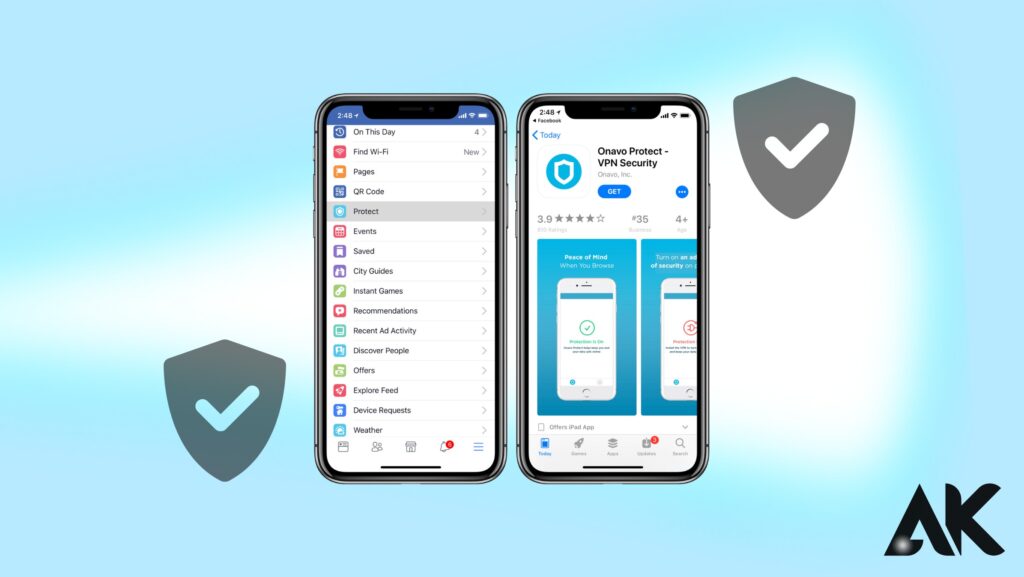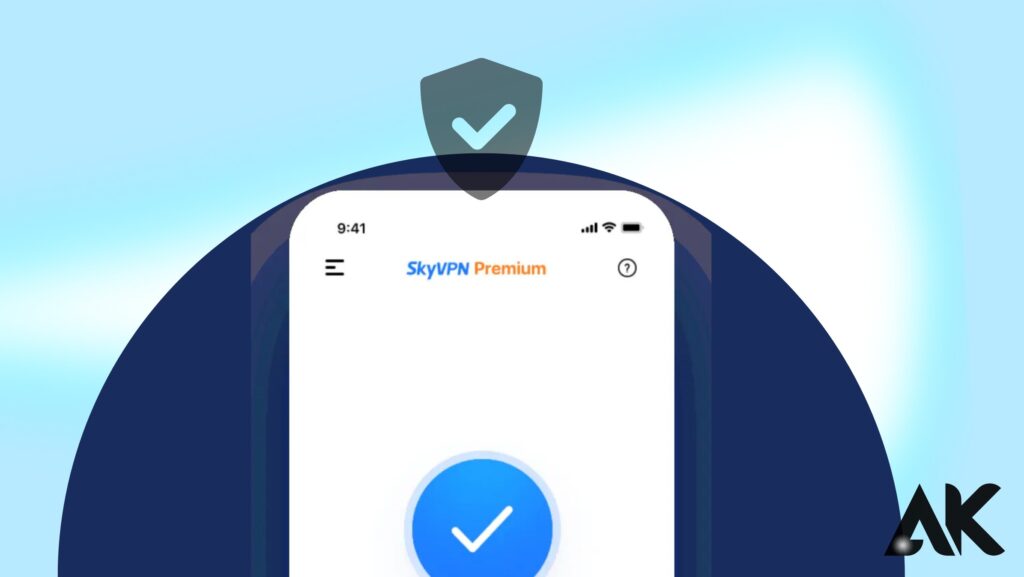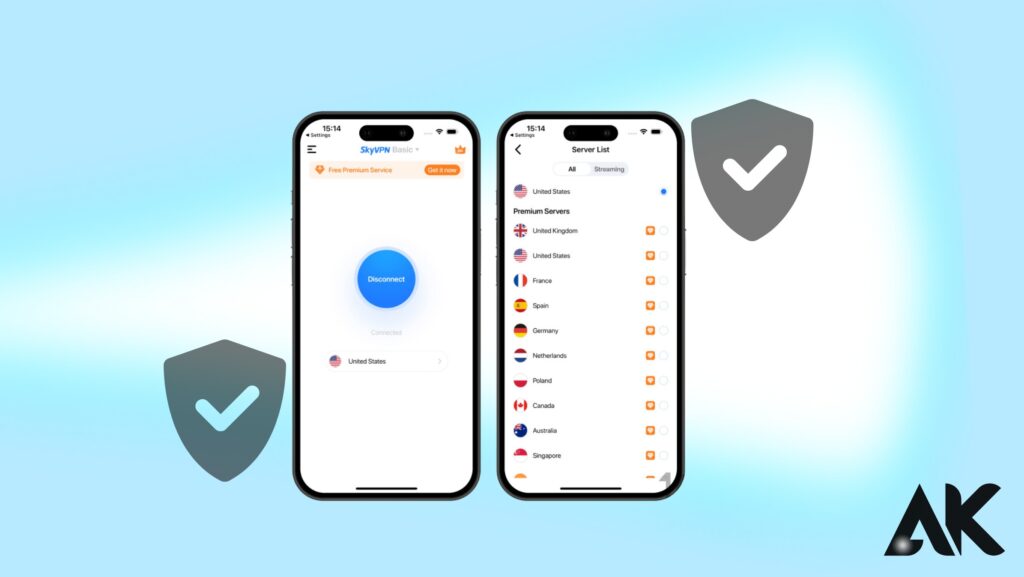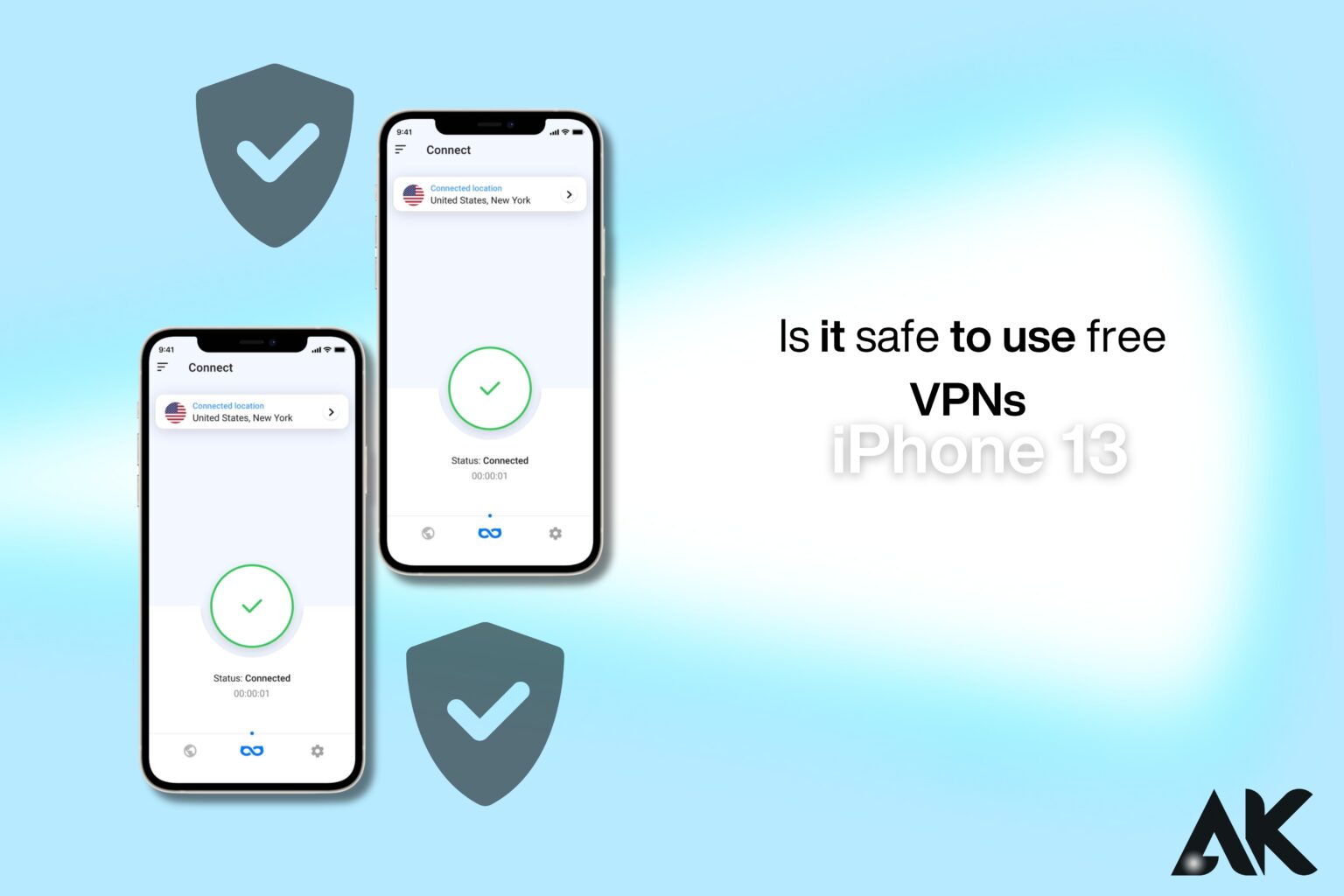Is it safe to use free VPNs on iPhone 13? Have you ever considered the safety of free VPNs on your iPhone 13? VPNs (Virtual Private Networks) are increasingly utilized by individuals to safeguard their data, improve their online privacy, and access geo-restricted content. Although a free VPN may appear to be an excellent value, it is crucial to comprehend the potential hazards prior to entrusting it with your personal information.
What’s This About?
VPNs operate by encrypting your internet traffic and redirecting it through a secure server, thereby keeping your data from hackers, internet service providers (ISPs), and government surveillance. Nevertheless, not all VPNs are created equal, particularly those that are free. Certain free VPN providers may actually compromise your privacy rather than safeguarding it.
What Will You Learn?
In this post, we’ll explore:
✅ How free VPNs operate and make money
✅ The biggest risks of using free VPNs on an iPhone 13
✅ Safer alternatives to protect your online privacy
Why Free VPNs Might Not Be Safe

How Free VPNs Make Money
Free VPNs may not charge users upfront, but they need to generate revenue. Here’s how they do it:
- Selling Your Data—Some free VPNs track your browsing history and sell it to third-party advertisers.
- Displaying Ads—Many free VPNs bombard users with pop-ups, which may contain malware.
- Weak Encryption—Some free services lack strong security features, leaving your data vulnerable.
- Bandwidth Reselling—A few VPNs (like Hola VPN) have been caught selling users’ bandwidth to other users or even botnets.
Security and Privacy Concerns
A 2023 study revealed that over 70% of free VPNs collect user data despite advertising themselves as private and secure. Some of the most common risks include:
| Risk | What It Means for You |
|---|---|
| Data Logging | Your browsing history might be stored and sold to third parties. |
| Weak Encryption | Outdated security protocols can leave your data exposed. |
| Hidden Malware | Some free VPN apps contain spyware or adware. |
| IP Leaks | Poorly configured VPNs may fail to hide your real location. |
🚨 Example: In 2020, a massive data leak exposed 20 million free VPN users’ data, including email addresses, passwords, and device information.
Is it safe to use free VPNs on iPhone 13?
The Biggest Dangers of Using a Free VPN on iPhone 13

Using a free VPN might seem like a good idea, but it comes with serious risks, including:
1️⃣ Data Logging & Privacy Issues— Many free VPNs track and sell your browsing history, defeating the purpose of using a VPN.
2️⃣ Weak Encryption—Some free VPNs don’t encrypt your data properly, making you vulnerable to cyber threats.
3️⃣ Malware & Adware—Many free VPNs contain ads, some of which include malware that can infect your iPhone.
4️⃣ IP & DNS Leaks—Some free VPNs fail to hide your real IP address, exposing your identity.
5️⃣ Bandwidth Reselling—Some services sell your internet connection, which could be used for illegal activities.
🚨 Bottom Line: Free VPNs can put your data and security at risk instead of protecting them.
How Free VPNs Make Money (And Why It Matters to You)

The majority of free VPN services assert that they provide online security at no cost; however, they still require revenue to operate. In contrast to paid VPNs, which depend on subscription fees, free VPN providers frequently employ alternative revenue streams, some of which could damage your privacy.
Common Ways Free VPNs Earn Money
- The purpose of using a VPN for privacy is undermined by the fact that many free VPNs monitor your browsing history and sell the data to advertisers.
- Intrusive Ads—Certain VPNs inundate users with pop-up advertisements that may contain malware or redirect them to phishing schemes.
- Limited Security Features—In order to reduce expenses, free VPNs may employ outdated security protocols or insufficient encryption, which can leave your data susceptible to hackers.
- Bandwidth Reselling—Certain providers, such as the notorious Hola VPN, have been caught reselling users’ internet bandwidth to third parties or other users.
The Bottom Line: If a VPN is free, you are the product—meaning your data is likely being exploited in some way.
What’s the Best Solution for You?
To stay safe online, consider these trusted alternatives:
✅ Use a Premium VPN— Services like NordVPN, ExpressVPN, or Surfshark offer strong encryption, no data logging, and high-speed servers.
✅ Enable Apple’s iCloud Private Relay—If you have iCloud+, this feature hides your IP address and encrypts Safari traffic.
✅ Choose a Reputable Free VPN—If you must use a free option, go for ProtonVPN Free, Windscribe, or TunnelBear, which have better privacy policies.
💡 Best Advice: If privacy and security matter to you, investing in a reliable VPN is worth it. Many offer free trials or money-back guarantees.
How to Stay Safe: Best Alternatives to Free VPNs
Instead of using a free VPN that puts your privacy at risk, consider these safer options:
1. Use a Trusted Paid VPN
Paid VPNs provide:
✅ Strong encryption (AES-256)
✅ A verified no-log policy
✅ Faster speeds with global servers
✅ Protection against IP and DNS leaks
Top-rated VPNs:
- NordVPN—Known for speed and security.
- ExpressVPN—Best for streaming and global access.
- Surfshark—Affordable with unlimited device connections.
💰 Money-Saving Tip: Many premium VPNs offer free trials or 30-day money-back guarantees, allowing you to test the service risk-free.
2. Use Apple’s iCloud Private Relay (for iCloud+ Users)
Apple has introduced iCloud Private Relay, a feature that hides your IP address and encrypts some internet traffic. While it’s not a full VPN replacement, it offers an additional layer of privacy for Safari users.
3. Stick to Reputable Free VPNs (If Necessary)
If you must use a free VPN, choose one with a strong reputation and independent security audits.
✅ ProtonVPN Free—No ads, no data logging, but limited server options.
✅ Windscribe Free—10GB/month, strong encryption, but fewer locations.
✅ TunnelBear Free—Limited to 500MB/month but user-friendly.
Case Studies: Real-Life VPN Privacy Scandals
Here are some real-world examples of how free VPNs have compromised user privacy and security:
1. 20 Million Free VPN Users’ Data Leaked (2020)
📁 What Happened? A massive database of 1.2TB containing personal data from 20 million free VPN users was exposed online.
⚠ What Was Leaked? User emails, passwords, IP addresses, and even browsing history—even though the VPNs claimed they had a “no-logs policy.”
🛑 The Problem: Many free VPNs falsely advertise privacy while secretly storing and exposing user data.
2. Hola VPN Scandal—Bandwidth Reselling Without Consent
📁 What Happened? Hola VPN, a popular free VPN, was caught selling users’ bandwidth without their knowledge.
⚠ Why Is This Dangerous? Your internet connection could be used for cyberattacks, illegal activities, or botnets—and you’d be responsible for it.
🛑 The Problem: Users thought they were getting a free VPN but unknowingly became part of a global proxy network.
3. Facebook’s Onavo VPN—Secret Data Collection
📁 What Happened? Facebook promoted Onavo Protect, a free VPN, claiming it would enhance privacy.
⚠ The Truth? Instead of protecting users, Onavo collected user data and sent it back to Facebook for advertising and market research.
🛑 The Problem: This VPN wasn’t about security—it was a data-mining tool disguised as a privacy solution.
Conclusion
While free VPNs may appear to be a convenient solution to keeping your privacy, they frequently result in data tracking, weak encryption, and security risks. Numerous VPNs log user activity, inject advertisements, or even resell bandwidth without your consent. Rather than compromising your online safety, it is advisable to utilize a reputable premium VPN or Apple’s iCloud Private Relay for enhanced protection.
Your data is valuable; do not exchange it for a free service that compromises your privacy. Investing in a secure and dependable VPN promises true anonymity, faster speeds, and peace of mind while browsing on your iPhone 13.
FAQs
Is it secure to use free VPNs on an iPhone 13?
No, the majority of free VPNs are associated with risks such as malware, weak encryption, and data surveillance. Some individuals even sell your data to advertisers. It is more secure to utilize Apple’s iCloud Private Relay or a reputable premium VPN.
Is it possible for free VPNs to reduce the pace of my internet connection?
Indeed, the high user traffic and limited servers of free VPNs frequently result in poor connection quality, buffering, and sluggish speeds. VPNs that are classified as premium VPNs provide connections that are quicker and more dependable.
Is it true that gratis VPNs actually retain my data?
Despite their assertions of a “no-logs policy,” numerous free VPNs collect and distribute user data. Some have been discovered storing personal information, IP addresses, and browsing history.
What is the most effective free VPN for iPhone 13?
If you are compelled to utilize a free VPN, consider Windscribe, TunnelBear, or ProtonVPN Free. These providers maintain robust privacy policies and refrain from selling user data. However, they are subject to restrictions, such as data limits or a reduced number of servers.

